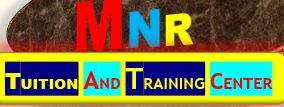High School Tuition
English:
- Reading and Comprehension:
- Analyzing and understanding complex texts, including fiction, non-fiction, and poetry.
- Developing critical reading skills, including inference, analysis, and evaluation.
- Writing Skills:
- Crafting well-structured essays, narratives, and arguments.
- Refining grammar, punctuation, and sentence structure.
- Practicing techniques for effective storytelling and persuasive writing.
- Literary Analysis:
- Studying literary elements such as plot, character, setting, theme, and symbolism.
- Analyzing texts for literary devices and authorial intent.
- Vocabulary and Language Use:
- Expanding vocabulary through reading, writing, and vocabulary-building exercises.
- Learning advanced grammar concepts and usage.
- Oral Communication:
- Developing public speaking and presentation skills.
- Participating in class discussions, debates, and presentations.
- Creative Writing:
- Exploring various forms of creative writing, such as short stories, poetry, and personal essays.
- Encouraging creativity and self-expression through writing exercises and prompts.
Science:
- Biology:
- Studying the structure and function of living organisms.
- Exploring topics such as cells, genetics, evolution, ecology, and human anatomy.
- Chemistry:
- Understanding chemical reactions, atomic structure, and the periodic table.
- Learning about chemical bonding, stoichiometry, and states of matter.
- Physics:
- Exploring the principles of mechanics, including motion, forces, and energy.
- Studying concepts such as electricity, magnetism, waves, and optics.
- Environmental Science:
- Understanding environmental issues and their impact on ecosystems and human health.
- Exploring topics such as climate change, pollution, conservation, and sustainability.
- Scientific Inquiry:
- Learning about the scientific method and experimental design.
- Conducting experiments and investigations to test hypotheses and analyze data.
- Applied Science:
- Exploring real-world applications of scientific concepts in technology, engineering, and medicine.
- Discussing current scientific research and developments in various fields.
Mathematics:
- Algebra:
- Solving equations, inequalities, and systems of equations.
- Learning about functions, graphs, and algebraic expressions.
- Geometry:
- Studying the properties of shapes, angles, and lines.
- Exploring concepts such as congruence, similarity, and theorems.
- Trigonometry:
- Understanding trigonometric functions, identities, and equations.
- Applying trigonometric concepts to solve problems in geometry and physics.
- Calculus (for Advanced Classes):
- Introducing the fundamentals of differential and integral calculus.
- Studying limits, derivatives, and integrals.
- Statistics and Probability:
- Analyzing data sets and graphical representations.
- Studying probability theory and statistical analysis techniques.
- Applied Mathematics:
- Exploring real-world applications of mathematical concepts in finance, economics, and engineering.
- Solving practical problems and modeling scenarios using mathematical principles.
